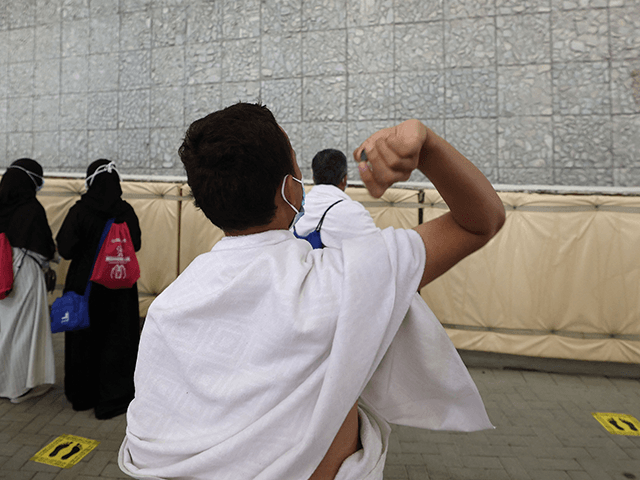Muslims participating in the annual Islamic pilgrimage to Mecca, Saudi Arabia, known as Hajj threw stones at a wall representing the devil in Mecca on Tuesday as part of the ritual.
Pilgrims arrived in Mina, a neighborhood of Mecca, early Tuesday morning local time “to partake in one of the final rituals of Hajj,” Saudi Arabia’s Al Arabiya reported on July 20.
“At Mina, Muslims must hurl the small pebbles and stones they received from Muzdalifah the night before at a giant wall, which represents the devil,” according to the Saudi news outlet.
Hajj pilgrims took part in the ‘stoning of the devil’ ritual in the Saudi city of Mina pic.twitter.com/06N3t1VdwA
— Reuters (@Reuters) July 20, 2021
Hajj pilgrims typically collect stones and pebbles to throw at the symbolic wall in Mina themselves at Muzdalifah, an “open but rocky plain” located just southeast of Mina, according to Arab News. Due to the Chinese coronavirus pandemic, Hajj pilgrims this year, like last year, were given a Saudi government-approved “bag of sterilized pebbles to ensure that they do not come into contact with any infections,” according to Al Arabiya.
“Yellow markings were placed on the floor surrounding the wall to ensure that the pilgrims maintain a two-meter distance between one another,” the news outlet reported on Tuesday.
The Hajj is an annual pilgrimage to Mecca that must be completed once in each able-bodied Muslim’s lifetime according to the five pillars of Islam. Saudi Arabia’s government limited this year’s Hajj to just 60,000 citizens and residents of the Kingdom. The religious event usually draws 2.5 million Muslims to Saudi Arabia. The annual Hajj, together with the lesser umrah pilgrimage, generated about $12 billion per year for Saudi Arabia’s economy pre-pandemic.
The Saudi government restricted Hajj participants to just 10,000 people living in Saudi Arabia in 2020 also due to the pandemic. This year, the Kingdom required all Hajj pilgrims to show proof that they were vaccinated against the Chinese coronavirus before they were allowed to partake in the ritual.
Saudi Health Minister Dr. Tawfiq Al-Rabiah told the Riyadh-based Arabic news channel Al-Ekhbariya TV on July 20 that “no coronavirus cases had been detected among the pilgrims during this Hajj.”
“There were some minor cases of tiredness due to the physical exertion, but the pilgrims with such simple cases left hospitals shortly after they received the necessary treatment,” he said.
“The health of the pilgrims is reassuring, praise be to God, and no Coronavirus infections or any diseases affecting public health have been recorded among them,” a spokesman for Saudi Arabia’s health ministry, Dr. Mohammed al-Abd al-Ali, wrote in a Twitter statement on July 20.

COMMENTS
Please let us know if you're having issues with commenting.